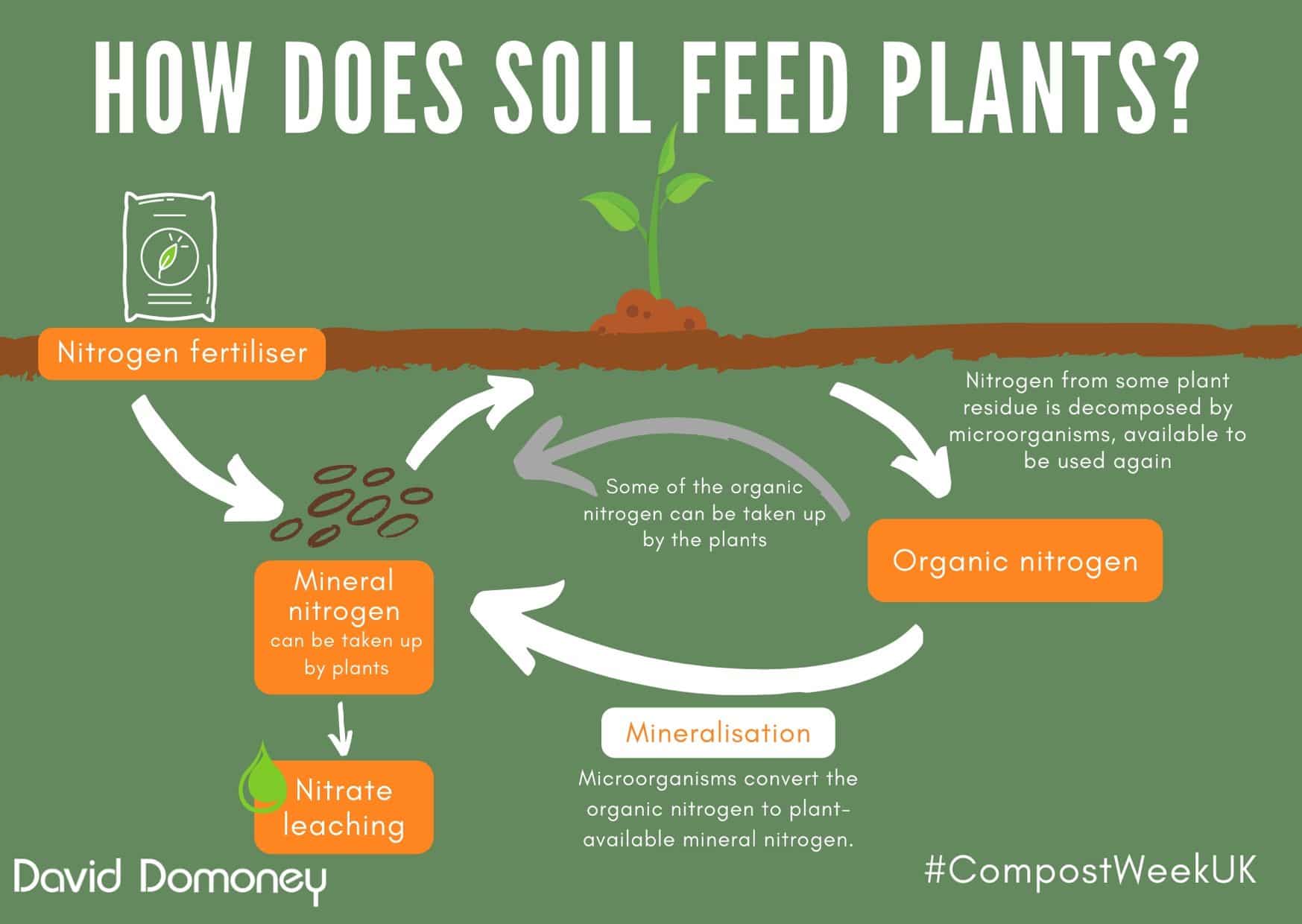Composting is the process of organic matter transforming into a material that can be beneficial when applied back into the environment. Find out just how home composting works.
With the right ingredients and conditions of moisture and air, large quantities of organic material can be transformed into compost in a relatively short time.
What is compost & composting?
Compost is simply decayed organic matter, but remember, it is not the same as soil.
Soil is the top layer of the earth, made up from sand, silt, clay and minerals and nutrients. Compost on the other hand is the recycling of plant and kitchen waste as a fertiliser and soil amendment. Compost improves soil by returning organic matter to the soil and improves drainage and water retention.
The addition of organic material to farmed fields dates to at least the Stone Age, with evidence suggesting that in Britain, the Scots improved their small-scale farms with compost 12,000 years ago.
How does composting work?
Composting is an aerobic process, meaning it requires oxygen. This is because the microorganisms such as bacteria, actinomyces, and fungi alongside worms and insects that break down the organic compounds are aerobic themselves – meaning they require oxygen to live.
By turning your compost, you are creating air pockets for oxygen to get inside. Aeration also removes heat, water vapour and other materials trapped inside.

These vital microorganisms consume the organic material for energy, breaking down complex structures to simpler elements.
It’s getting hot in here
Heat is produced as a by-product of the breakdown of the material, and will depend on the size of the pile, the moisture and air content as well as the ratio of carbon and nitrogen from brown and green materials.

There are three stages of heat in the home composting process:
ONE
The initial phase is where mesophilic microorganisms, that love medium-heat and thermophilic microorganisms, that love high-heat show rapid growth in numbers.
TWO
This next phase is when most of the composting takes place and where temperatures reach the highest. Some mesophilic microorganisms may survive the heat, but there is now a dominance of high-heat loving bacteria, fungi and actinomycetes.
Once the temperature is around 70˚C, the compost is sanitised as pathogens die. These conditions also kill seeds of weeds, so the compost is suitable to be a fertiliser.
THREE
The final thermal phase is maturation, when the composting procedure slows down and the temperature begins to drop. Once cooled, the compost will be ready for you to use in your garden.
Materials matter
You’ve got the recipe for home composting, but do you have the right ingredients? A good compost heap has the right balance of materials.
You’ll need more brown, bulking materials are high in carbon content, which provides energy for the microorganisms whilst they break down the matter. These include straw, hay and cardboard, but too much carbon will slow down the process.

The rest is made up from nitrogen rich green materials are essential for cell growth and function which includes fruit and veg peelings, coffee grounds and grass cuttings. Too much nitrogen will result in an unpleasantly smelling mixture.
Decomposition by the microorganisms happens on the surface of the waste matter, therefore, it will be easier to break down if matter is cut into smaller chunks which will increase the surface area available.
Give it time
The method you use will impact the amount of time taken to produce the end product. A tumbler method can deliver compost in around a month, whereas a regular no-turn compost bin can take around 3 months until results are seen. Alternatively, a wormery is a great option for allowing waste to break down in 1-3 months.

To speed up the process, add an accelerator such as Levington Organic Compost Maker. This is achieved by stimulating the bacteria growth due to the nitrogen rich ingredients.
These timelines will of course be impacted by the size of the compost heap, the conditions and types or amounts of materials that you are incorporating. Keeping all the important factors under control means you will have quality compost ready to use in your garden in no time at all.

Leave A Comment